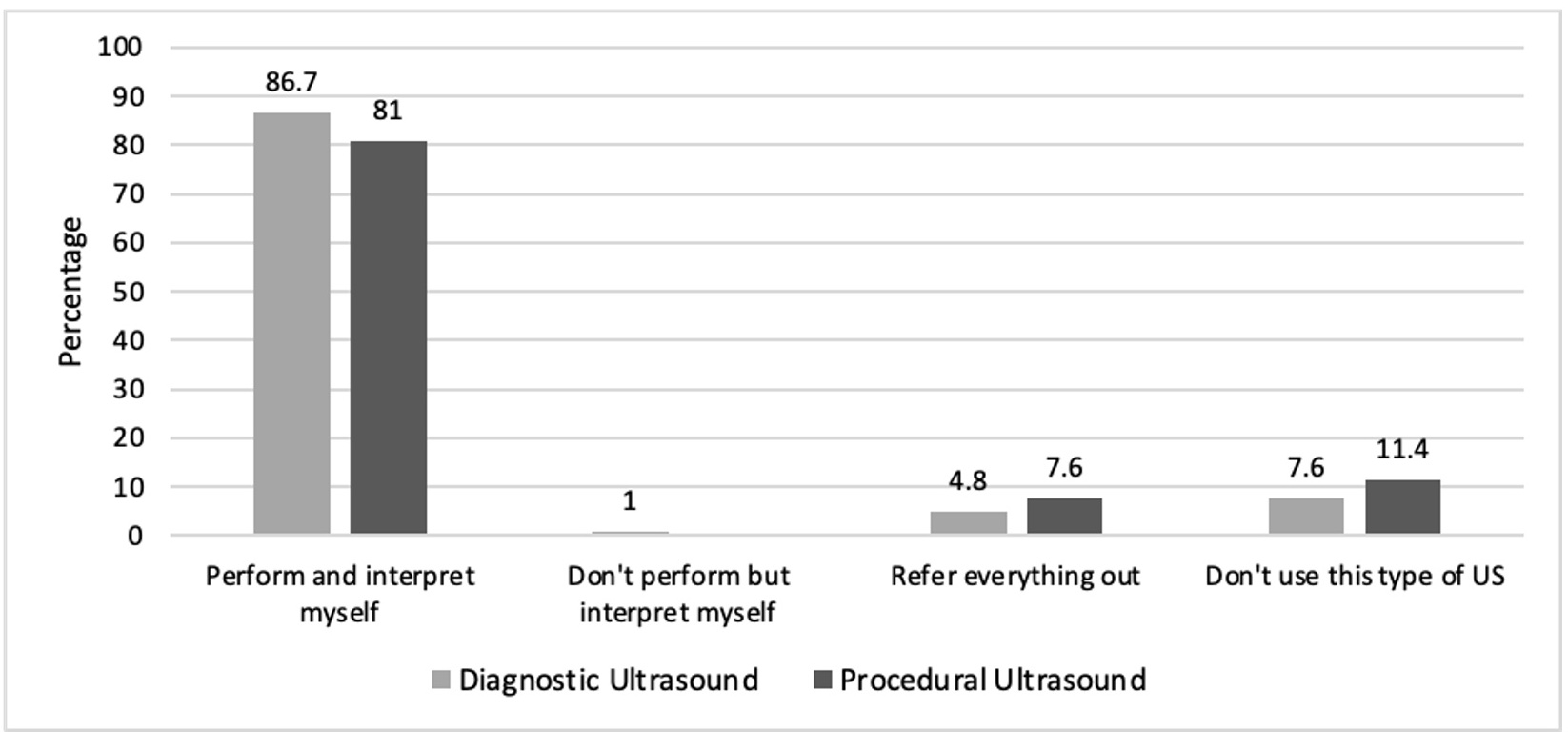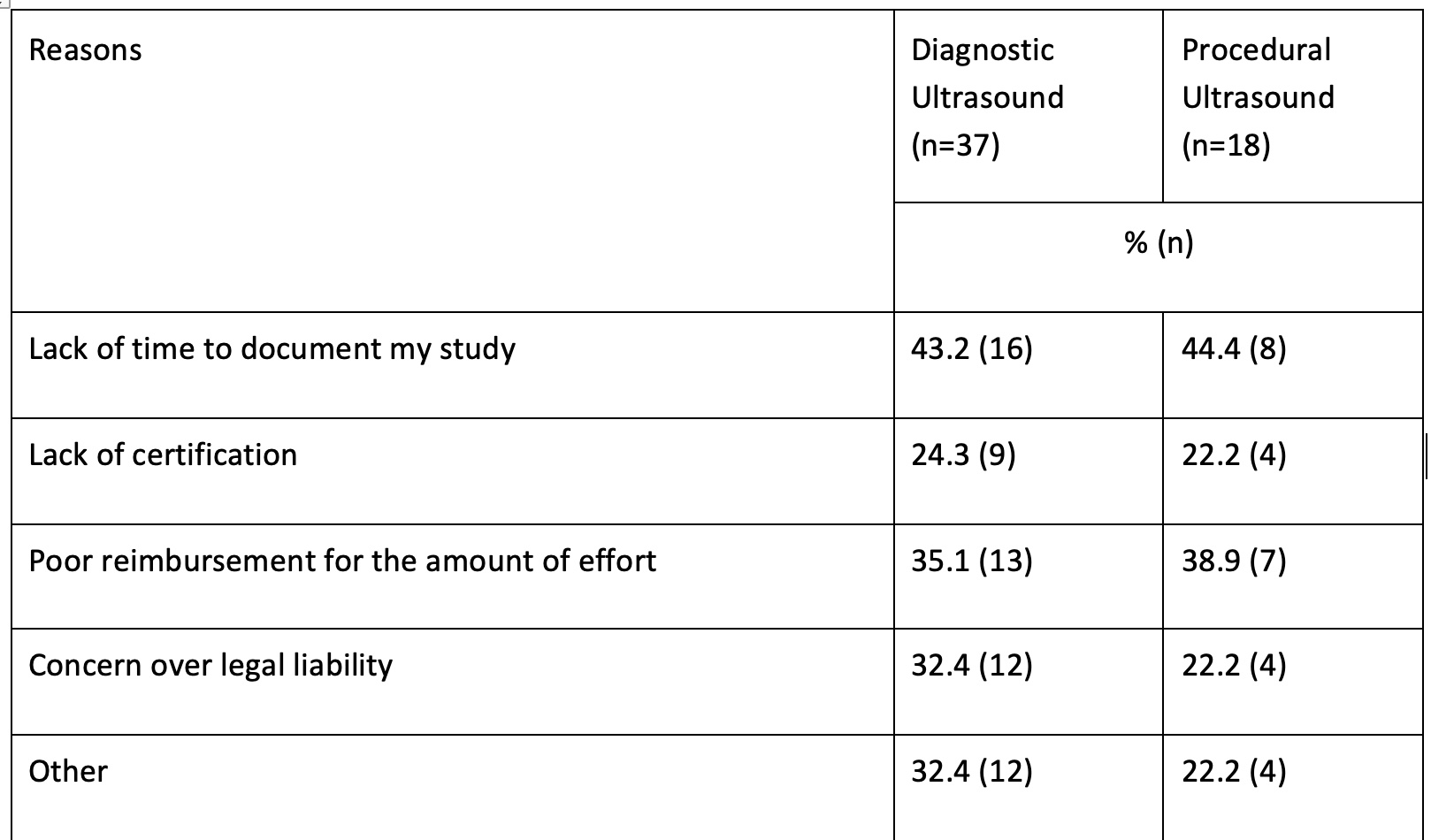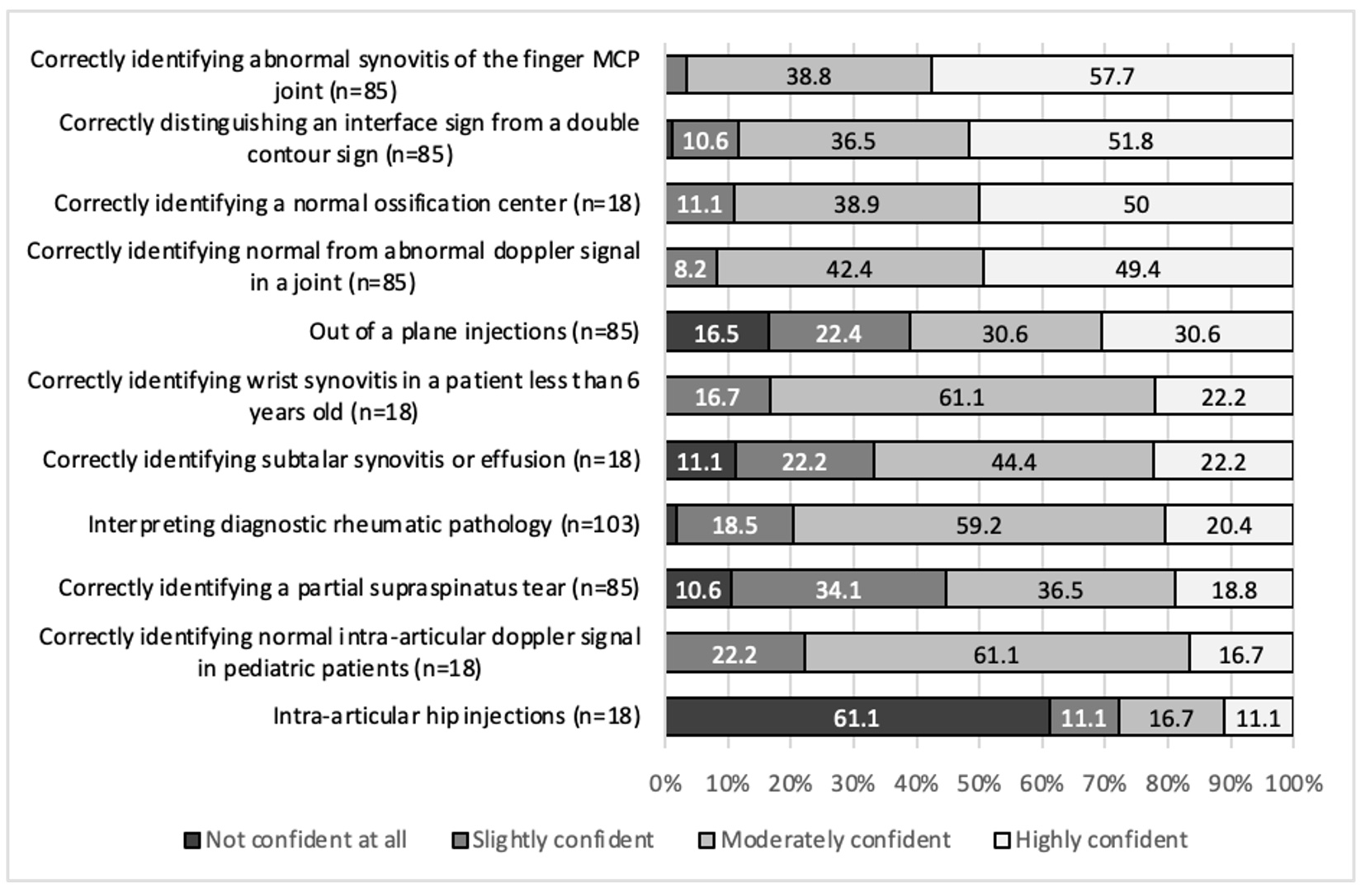Session Information
Session Type: Abstract Session
Session Time: 2:00PM-3:30PM
Background/Purpose: Musculoskeletal ultrasound (MSKUS) is an integral part of rheumatology training. The Ultrasound School of North American Rheumatologists (USSONAR) has been a leader in rheumatology MSKUS training for fellows (Fundamentals in Musculoskeletal Ultrasound (FMU) track) and practitioners (Train the Trainer (TTT) track). Limited data exits regarding the practices of rheumatology US professionals trained through USSONAR. The survey aimed to determine the current use of MSKUS for diagnostic and/or procedural MSKUS among past participants of USSONAR’s training program and explore barriers to successful implementation.
Methods: A 28 question survey was sent in September 2022 to 482 participants of the USSONAR FMU/TTT courses who completed a final examination (2009-2020). Each respondent was given a unique identifier matched to their exam scores and total number of practice studies submitted in their training year.
Results: After removing 108 non-deliverable emails, the survey received a response rate of 105/374 (28%). Participant track influenced survey participation, 31.5% in the TTT versus 19.5% in the FMU, (p=0.006). Analyses using background variables such as FMU vs. TTT status, year of graduation, number of studies submitted or exam scores did not show evidence of nonresponse bias.
The median years practicing MSKUS was 6, with 70.9% practicing in academic medical centers. 71% of the respondents held a MSKUS certification. 81.9% and 19.8% were adult and pediatric rheumatologists respectively. 86.7% performed and/or interpreted diagnositc MSKUS themselves and 81% performed their own procedures (Figure1). 58.8% billed for at least 50% of diagnostic studies and 78.8% of procedural studies.
The leading reason for not personally doing diagnostic US was lack of administrative support.
The leading reason for not personally doing procedural MSKUS was lack of time (Table 1).
When asked to rate their confidence in a set of MSKUS skills 2 years after their USSONAR course, the majority of adult rheumatologists felt moderately to highly confident in their skills, similarly the vast majority of pediatric rheumatologists felt moderately confident in a set of pediatric MSKUS skills (Figure 2). Adult clinicians were least confident about performing out of plane injection and identifying partial supraspinatus tendon tears, while pediatric clinicians were least confident performing intra-articular hip injection.
Conclusion: USSONAR training provided the majority of FMU and TTT participants the knowledge and skills to use and bill for MSKUS in practice. Participants had confidence in performing diagnostic and procedural studies and also passed a certification exam in MSKUS. Most participants agreed that USSONAR training made them a better rheumatologist.
Procedural Ultrasound (multiple selections possible)
2 years after participation in the USSONAR FMU/TTT Course
To cite this abstract in AMA style:
Nishio M, Aslam F, Ziniel S, Kissin E. Current Musculoskeletal Ultrasound Practices of 12 Years of past Participants of a 10-Months Rheumatology Ultrasound Training Program (Ultrasound School of North American Rheumatologists) [abstract]. Arthritis Rheumatol. 2023; 75 (suppl 9). https://acrabstracts.org/abstract/current-musculoskeletal-ultrasound-practices-of-12-years-of-past-participants-of-a-10-months-rheumatology-ultrasound-training-program-ultrasound-school-of-north-american-rheumatologists/. Accessed .« Back to ACR Convergence 2023
ACR Meeting Abstracts - https://acrabstracts.org/abstract/current-musculoskeletal-ultrasound-practices-of-12-years-of-past-participants-of-a-10-months-rheumatology-ultrasound-training-program-ultrasound-school-of-north-american-rheumatologists/



